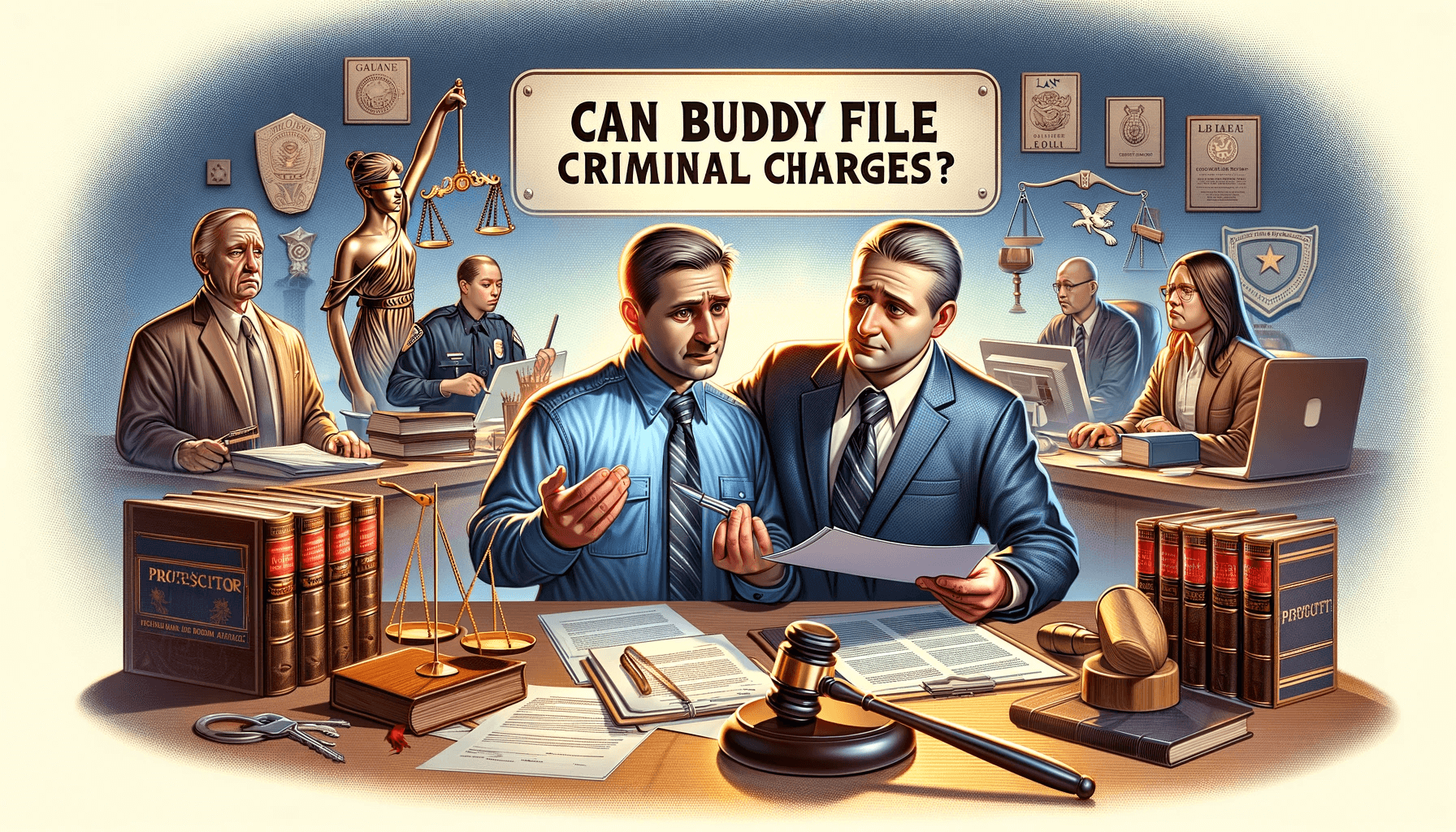Hello there! I’m John M. Kaman from Kaman Law Firm. A question I often hear is, “Can my buddy file criminal charges?” It’s a topic that many find confusing, so let’s delve into it with some clarity and depth.
Understanding Who Can File Criminal Charges
The short answer is, generally, your buddy, or any individual, cannot directly file criminal charges. This is because criminal charges are typically filed by a government authority, usually the state, represented by a prosecutor or district attorney. However, this doesn’t mean that individuals don’t play a crucial role in the process.
The Role of Individuals in Criminal Charges
While individuals can’t file charges themselves, they can certainly initiate the process. Here’s how:
- Reporting a Crime: If your buddy is a victim or a witness, they can report the crime to the police. This is often the first step in the criminal justice process.
- Providing Evidence: After reporting, they can provide evidence or testimony that can help build a case.
- Pressing Charges: This term is often misunderstood. When individuals say they want to “press charges,” it typically means they want the prosecutor to file charges, based on their report and evidence.
The Prosecutor’s Discretion
The decision to file criminal charges lies with the prosecutor. They evaluate factors like:
- Evidence Strength: Is there enough evidence to prove the case beyond a reasonable doubt?
- Public Interest: Would pursuing the case serve the public interest?
- Legal Merit: Does the case have solid legal grounds?
What If the Prosecutor Decides Not to File Charges?
There are situations where a prosecutor might choose not to file charges. In such cases:
- Private Prosecution: In some jurisdictions, private prosecution is an option, though it’s rare and comes with various legal complexities.
- Civil Lawsuit: If criminal charges aren’t filed, your buddy might have the option to file a civil lawsuit, depending on the nature of the issue.
Understanding the Difference Between Criminal and Civil Cases
It’s important to differentiate between criminal and civil cases. Criminal cases are filed by the state and involve violations of criminal law, while civil cases are disputes between individuals or entities, usually involving claims for damages or specific performance.
The Importance of Legal Advice
In any situation where someone is considering their legal options, whether it’s about filing a report that could lead to criminal charges or understanding the outcomes of a prosecutor’s decision, it’s crucial to seek legal advice.
Conclusion: Navigating the Legal Landscape
In summary, while your buddy can’t directly file criminal charges, their actions can certainly initiate the process. The criminal justice system can be complex, and understanding the nuances of how charges are filed and pursued is essential.
If you or your buddy need legal advice or assistance in navigating these waters, don’t hesitate to reach out to us at Kaman Law Firm. We’re here to clarify the process and guide you through your legal journey.









Leave a Reply